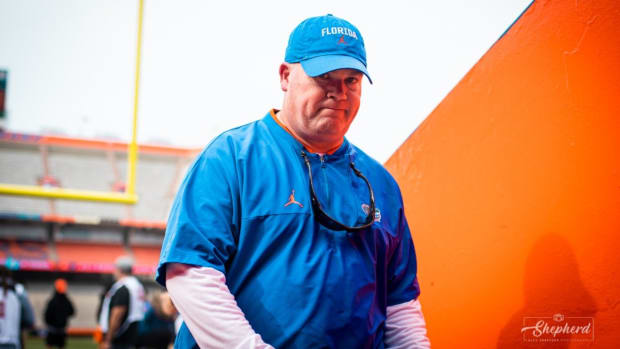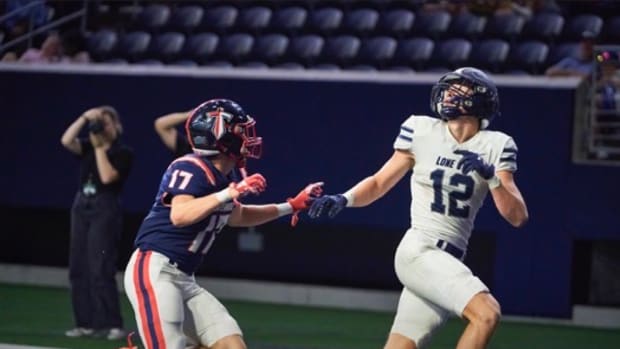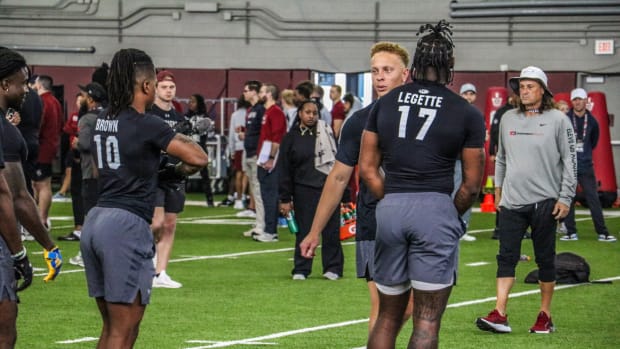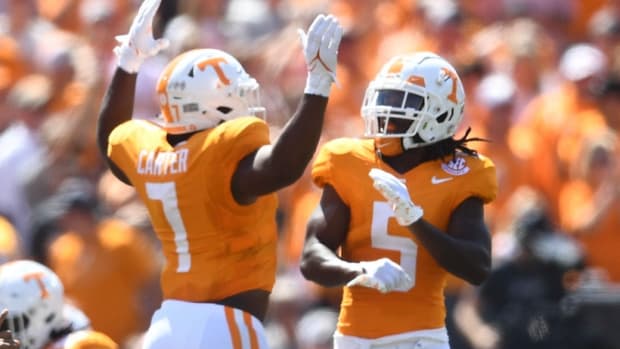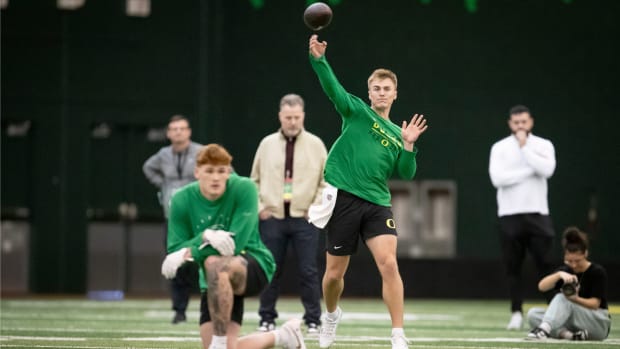Which of the SEC's Tigers Teams Is Set Up Best for Success in 2019?
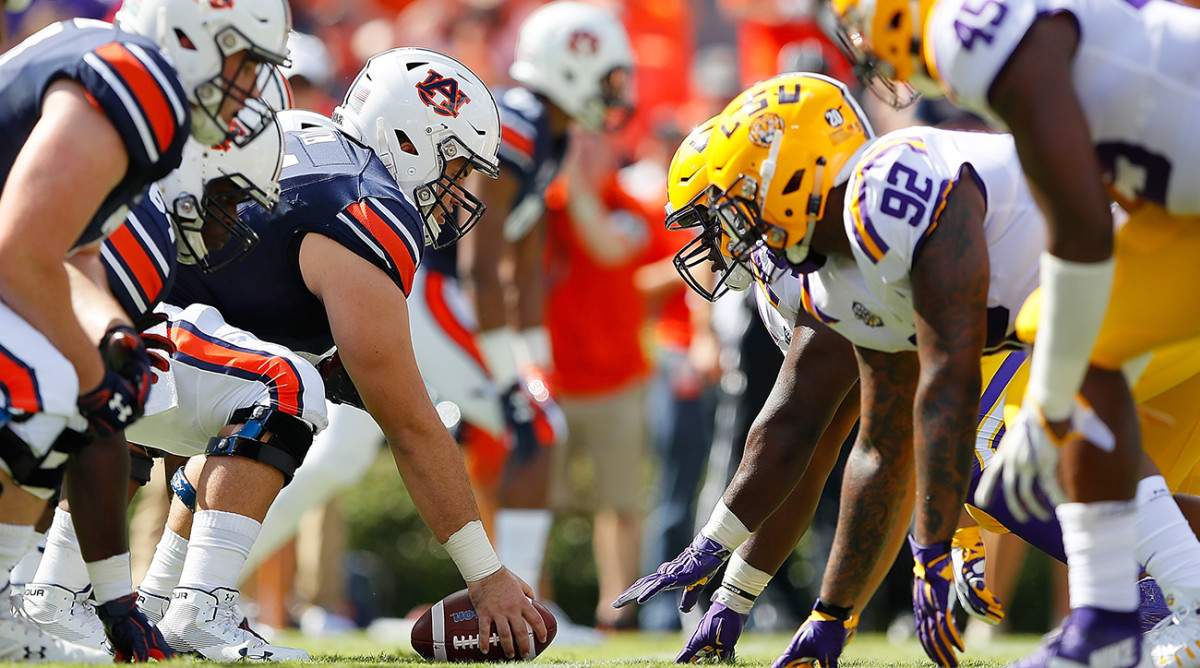
Somehow the result of a golf tournament has inspired a college football question, and I am here for it ...
From Dan: Tiger Woods just won the Masters. Which of the SEC Tigers is most likely to look back at the end of 2019 and say that they had a successful season?
Dan is a master at getting his questions answered because he clearly understands search engine optimization. But this particular question helps me continue a theme that I started last week that you’re going to see throughout the offseason: Don’t sleep on Auburn. Teams with defensive lines as loaded as Auburn’s will be tend to succeed, and that’s why I’m high on those Tigers even though last year was a challenging one on the Plains. That doesn’t mean everyone will ultimately be happy. Alabama is still a program that exists and will be favored to win the division, and the other set of SEC West Tigers also deserves to have high expectations this year.
Just as I kept telling you last offseason that LSU was going to be much better than predicted—Ed Orgeron was never on the hot seat and anyone who told you he was only needed to include someone from the SEC on their hot seat list—my frequent refrain this offseason will be that Auburn is due for a bounceback and that Auburn tends to succeed when the general consensus is that Auburn will be a tire fire. (This also seems to work in reverse, by the way.)
My main reason for optimism is a defensive line that features tackle Derrick Brown in the middle and Marlon Davidson and Nick Coe coming off the edge. But I also think the move to put head coach Gus Malzahn in firm control of the offense will help. I’m a huge proponent of people doing The Thing That Made Them Rich In The First Place. For Malzahn, that’s calling plays. With Kevin Steele running the defense, that side of the ball doesn’t need to be babysat, so Malzahn should have the bandwidth to run the offense better than it was run last season. It will be interesting to see if Malzahn gives in and admits that his offense works much better with a better runner at quarterback. Yes, it was probably a nice recruiting chip to coach the No. 1 pick in the 2011 NFL draft, but Cam Newton was a unicorn. Most years, Auburn doesn’t need a guy with an NFL arm for the offense to work. The Tigers need someone with NFL legs. Because so many defenders must be committed to the ground when Auburn’s QB can run, the run game opens up the pass game. A merely adequate passer will do. And if the Tigers have someone who can run and throw, watch out. But if they’re choosing between better arm and better legs, pick better legs.
The only issue I see with my bullishness on Auburn is the probability that LSU will be as good or better than it was last season. This is the deepest defensive line LSU has had in years, and Joe Burrow looked in firm command of the offense at the end of last season. If the Bayou Bengals—sorry, running out of ways to say Tigers—can block better, they’ll be able to compete with anyone in the country. This is good, because LSU and Auburn’s schedules are nasty. Beside the usual SEC West chamber of horrors, LSU has Texas in Week 2 and always gets Florida out of the East. Auburn always gets Georgia out of the East, but those Tigers also open with Oregon and draw Florida as their rotating East opponent. So even though I think both sets of SEC West Tigers will be good, it probably will take a little good fortune for either one to have a season that satisfies its demanding fan base.
There is another set of Tigers in the SEC, but it’s a little more difficult to predict how this season will go. Missouri cooperated with the NCAA in an academic fraud case and got hammered anyway, so pending an appeal, these Tigers remain banned from a bowl game. So far, Mizzou coach Barry Odom has done a great job keeping this group together when all the seniors could have chosen to play elsewhere this season as a result of the penalties.
Quarterback Kelly Bryant, who began last season as Clemson’s starter but then left the team to preserve a year of eligibility after he was benched in favor of Trevor Lawrence, decided he wasn’t going anywhere. That probably helped solidify everyone else. The big question now is how well Bryant replaces four-year starter Drew Lock, who may hear his name called in the first round of the NFL draft in eight days.
The past two seasons, Missouri has started slow and finished strong. That would make sense this year for a team breaking in a very different quarterback from the last one, but the schedule actually sets up well for a fast start for these Tigers.
From Douglas: Who is under center Week 1 for my Badgers? Deepest QB room we have ever had with Wolf/Mertz/Vanden Boom/Coan? Also, do we rebound this season?
It’s a pretty deep quarterback room when the guy who started for the previous three seasons (Alex Hornibrook) leaves as a grad transfer to go to a school (Florida State) where he may not start. Judging by the way the first-team reps have been distributed so far in spring practice, junior Jack Coan—who started four games last season—will get every chance to win the starting job. But true freshman Graham Mertz, Wisconsin’s most heralded quarterback signee in the recruiting service era, may get an opportunity to win the job in preseason camp.
Even though Wisconsin must replace four starting offensive linemen, the question of whether Wisconsin rebounds probably has more to do with the defense than the offense. After ranking no lower than No. 21 in yards per play allowed since 2012, the Badgers plummeted to No. 51 in the category (5.5 yards a play) last season.
Graduation hit the Badgers hard at linebacker and cornerback last season, and injuries gutted the defensive end and safety groups. If defensive coordinator Jim Leonhard has developed some of the players who probably weren’t ready to fill in yet last year and ends Garrett Rand and Isaiahh Loudermilk are healthy, then the defense should bounce back. That should put Wisconsin in a position to compete for the Big Ten West title again. But the division has improved across the board, so Wisconsin will need to make strides to retake its place atop the West.
From @RealBBBB: Who actually wants the proposed legislation that would cause football/basketball teams to lose a scholarship for second year if a grad transfer doesn't graduate after one year? Coaches? ADs?
The group that wants this proposed rule change—which will be voted on this week by the NCAA’s Division I Council—is the group most likely to lose its best players to the grad transfer rule: The non–Power 5 leagues.
In the Power 5, the players who leave as graduate transfers typically do so because they can’t win a starting job at their current school. In football’s Group of Five and in mid-major basketball leagues, the talent flows differently. If a player had a great first three years at a lower level, he might be able to fill an immediate need at the Power 5 level. (Where he probably wanted to play all along.) Texas Tech’s basketball team doesn’t make the national title game this year if guard Matt Mooney doesn’t transfer from South Dakota. (Of course, South Dakota only had Mooney because he transferred from Air Force.)
Don’t expect the Power 5 leagues to vote for this change. It doesn’t serve their interests. We’ll see if the other leagues can manage to get it passed. It will be funny if they do, because those programs never seem to mind taking Power Five players transferring down. But when has massive hypocrisy ever stopped anyone from doing anything in college sports?

